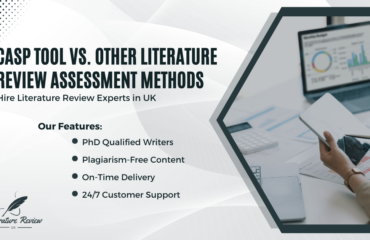
Introduction
In the academic world, referencing styles play a crucial role in maintaining the integrity of scholarly work. Among the plethora of citation formats available, two of the most commonly used ones are Harvard and APA 7. Both serve the purpose of acknowledging sources and providing readers with the necessary information to locate them. However, they differ in various aspects, from formatting to in-text citations. This blog post aims to dissect the disparities between Harvard and APA 7 referencing styles, offering insights into their respective structures, advantages, and best use cases.
Harvard vs. APA Referencing: Understanding the Basics
Before delving into the intricacies of Harvard and APA 7 referencing styles, it’s essential to grasp the fundamental principles underlying each.
Harvard referencing, also known as the author-date system, primarily employs the author’s surname and the year of publication within the text to indicate the source of information. Meanwhile, APA 7, developed by the American Psychological Association, utilizes a similar author-date approach but incorporates additional elements such as page numbers for direct quotations and a standardized format for references.
Harvard vs APA citation styles: A Detailed Comparison
Now, let’s compare Harvard and APA 7 referencing styles across various aspects to understand their nuances better.
Formatting: One of the noticeable differences between Harvard and APA 7 citation styles lies in their formatting requirements. While both styles emphasize consistency and clarity, they vary in terms of font size, spacing, and indentation. Harvard referencing typically adopts a more flexible approach, allowing for variations in font size and spacing, whereas APA 7 adheres to strict guidelines regarding font (Times New Roman, 12-point), double-spacing, and hanging indentation for reference lists.
In-text Citations: In Harvard referencing, in-text citations consist of the author’s surname and the year of publication enclosed in parentheses, e.g., (Smith, 2019). On the other hand, APA 7 in-text citations follow a similar format but may also include page numbers for direct quotations, e.g., (Smith, 2019, p. 45). This distinction is crucial for accurately attributing ideas and providing readers with pinpoint references.
Reference Lists: Both Harvard and APA 7 styles require the inclusion of a reference list at the end of the document, providing detailed information about each source cited. However, the formatting of these reference lists differs significantly. Harvard reference lists are organized alphabetically by the author’s surname, whereas APA 7 lists follow a strict format based on the author’s last name and initials, publication year, title, and source information.
Electronic Sources: In today’s digital age, electronic sources have become increasingly prevalent in academic writing. Both Harvard and APA 7 styles offer guidelines for citing online resources, including websites, e-books, and online journals. However, APA 7 provides more specific instructions for citing electronic sources, including DOI (Digital Object Identifier) or URL formatting, making it the preferred choice for disciplines that heavily rely on online research.
Harvard vs APA 7 citation formats: Exploring the Differences
While Harvard and APA 7 referencing styles share common principles, they exhibit distinct differences in citation formats that cater to different academic disciplines and preferences.
Disciplinary Variations: Harvard referencing is widely used across various disciplines, including humanities, social sciences, and natural sciences, due to its flexibility and simplicity. Its emphasis on authorship and publication dates makes it suitable for disciplines where the emphasis is on the source’s authority and currency. In contrast, APA 7 is predominantly used in the social sciences, such as psychology, sociology, and education, owing to its detailed guidelines for citing sources and formatting manuscripts according to psychological conventions.
Visual Presentation: The visual presentation of Harvard and APA 7 citations also differs significantly. Harvard citations often appear as brief parenthetical references within the text, maintaining a seamless flow of writing. In contrast, APA 7 citations may include additional information such as page numbers and specific formatting for direct quotations, which can interrupt the flow of text but provide more detailed source attribution.
Accessibility and Ease of Use: In terms of accessibility and ease of use, Harvard referencing is often favored for its simplicity and intuitive approach. With minimal formatting requirements and a focus on authorship and publication dates, Harvard referencing is relatively easy to learn and implement, making it suitable for students and researchers at all levels. APA 7, while more complex due to its detailed guidelines and formatting requirements, offers comprehensive resources and guides for users, ensuring accurate and consistent citation practices.
Differences between Harvard and APA 7 citations: A Comprehensive Analysis
To gain a deeper understanding of the disparities between Harvard and APA 7 citations, let’s examine their differences in greater detail.
Authorship Attribution: One of the primary distinctions between Harvard and APA 7 citations lies in their approach to authorship attribution. In Harvard referencing, the emphasis is placed on the author’s surname and the year of publication, with minimal emphasis on specific page numbers or additional details. This streamlined approach allows for quick and efficient source identification but may lack the specificity required for certain disciplines or research contexts. In contrast, APA 7 citations provide more detailed information about the source, including the author’s initials, publication year, title, and page numbers for direct quotations, ensuring precise attribution and referencing.
Reference Formatting: Another key difference between Harvard and APA 7 citations is their formatting requirements for reference lists. While both styles require the inclusion of a reference list at the end of the document, Harvard reference lists are typically organized alphabetically by the author’s surname, with minimal punctuation and formatting requirements. In contrast, APA 7 reference lists follow a specific format based on the author’s last name and initials, publication year, title, and source information, with precise punctuation and formatting guidelines to ensure consistency and clarity.
Digital Object Identifier (DOI) and URL Formatting: In the digital age, the ability to accurately cite online sources is essential for academic integrity. Both Harvard and APA 7 styles offer guidelines for citing electronic sources, including websites, e-books, and online journals. However, APA 7 provides more specific instructions for citing online sources, including DOI (Digital Object Identifier) or URL formatting, making it the preferred choice for disciplines that heavily rely on online research. This attention to detail ensures that online sources are accurately cited and accessible to readers, enhancing the credibility and reliability of the research.
Harvard vs APA citation guide: Navigating the Referencing Maze
Navigating the intricacies of Harvard and APA 7 citation styles can be daunting, especially for those new to academic writing. To help simplify the process, let’s explore some practical tips and guidelines for effectively using both styles.
Consult Style Guides and Resources: One of the most effective ways to master Harvard and APA 7 citation styles is to consult authoritative style guides and resources. Both Harvard and the American Psychological Association offer comprehensive guides and manuals that outline the rules and conventions of their respective citation styles, including examples and explanations for various citation formats. These resources serve as invaluable references for students, researchers, and academics seeking to enhance their citation skills and ensure adherence to established standards.
Use Citation Management Tools: In addition to consulting style guides, citation management tools can also streamline the citation process and ensure accuracy and consistency. Platforms such as Zotero, Mendeley, and EndNote allow users to manage and organize their references, generate citations and bibliographies in Harvard or APA 7 style, and even collaborate with peers on research projects. These tools automate the citation process, reducing the likelihood of errors and saving valuable time for researchers. By leveraging citation management tools, users can focus more on the content of their research and less on the intricacies of citation formatting.
Practice Consistently: Like any skill, mastering Harvard and APA 7 citation styles requires practice and repetition. As you engage in academic writing projects, make a conscious effort to apply the principles of both styles consistently. Practice citing a variety of sources, including books, journal articles, websites, and multimedia sources, to familiarize yourself with the nuances of each style. By incorporating citation practices into your writing routine, you’ll gradually become more proficient in using Harvard and APA 7 citation styles effectively.
Seek Feedback and Review: Don’t hesitate to seek feedback from peers, instructors, or colleagues on your citation practices. Peer review and constructive feedback can help identify any errors or inconsistencies in your citations and provide valuable insights for improvement. Additionally, take advantage of proofreading tools and citation checkers to ensure the accuracy and integrity of your citations before submitting your work for publication or evaluation.
Stay Updated on Changes: As academic standards and conventions evolve, it’s essential to stay updated on any changes or updates to Harvard and APA 7 citation styles. Subscribe to academic journals, newsletters, or online forums related to citation and referencing to stay informed about the latest developments in citation practices. Additionally, regularly check the official websites of Harvard and the American Psychological Association for updates to their style guides and resources.
Conclusion
In conclusion, the choice between Harvard and APA 7 referencing styles ultimately depends on your disciplinary preferences, academic requirements, and personal preferences. While both styles serve the purpose of acknowledging sources and providing readers with the necessary information to locate them, they exhibit distinct differences in formatting, citation practices, and disciplinary suitability.
Whether you opt for the flexibility of Harvard referencing or the precision of APA 7, it’s essential to familiarize yourself with the rules and conventions of each style and practice consistently to ensure accuracy and consistency in your citations. By leveraging authoritative style guides, citation management tools, and feedback from peers, you can navigate the referencing maze with confidence and enhance the credibility and integrity of your academic work.
We hope this blog post has shed light on the nuances of Harvard and APA 7 referencing styles and provided valuable insights for choosing the right style for your needs. If you have any questions, comments, or experiences to share regarding Harvard and APA 7 citation styles, we invite you to leave a comment below. Your feedback is invaluable in fostering a community of learning and collaboration.




